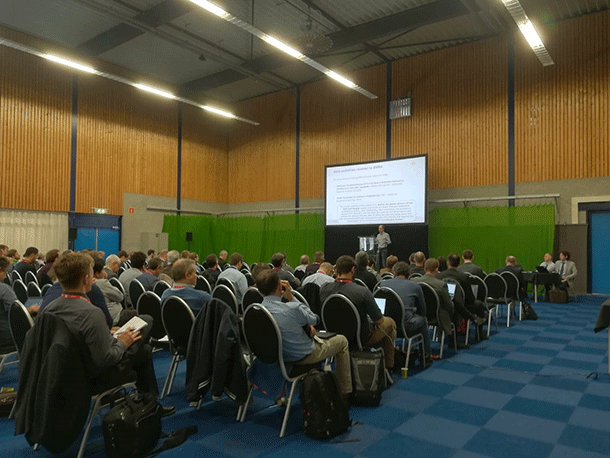R&D in the 12th ADCSS Workshop

Every year the European Space Research and Technology Centre (ESTEC) in Noordwijk (the Netherlands) hosts the European Space Agency's workshop on Avionics, Data, Control and Software Systems (ADCSS).
This year's 12th workshop, held from 16 to 18 October, once more addressed the latest advances in avionics for space applications, doing so by means of presentations and discussion panels between the European Space Agency (ESA) itself, the space industry and workshop participants.
GMV presented the paper "QUEENS (BRAVE FPGA tools quality assessment & Improvements)", dealing with the QUEENS-FPGA project the company is currently working on. This project revolves around the use of the new European radiation-hardened FPGAs for the space sector, developed in the BRAVE program. Under this project GMV, in a consortium with other organizations, has defined a quality-assessment methodology of the development tools for these new rad-hard FPGAs created by the company NanoXplore. This is the first ever project to present a systematic comparison with real implementations of programmable electronic circuits, including complex image-processing algorithms used on space projects by GMV.
This workshop showcases the space industry's results in avionics, data processing, critical and control software while unifying and consolidating development standards and technology. By dealing with all these issues ESA also aims to draw up roadmaps taking in new activities as part of its R&D plans for future space missions.
What is an FPGA?
A Field Programmable Gate Array (FPGA) is a logical device programmable by means of hardware description languages, in most cases reconfigurable. In the commercial sphere FPGAs are used in nearly all embedded systems. In the space sector in particular they are now coming into their own on the strength of new fault-tolerant designs, mitigation techniques and radiation-hardened technology.